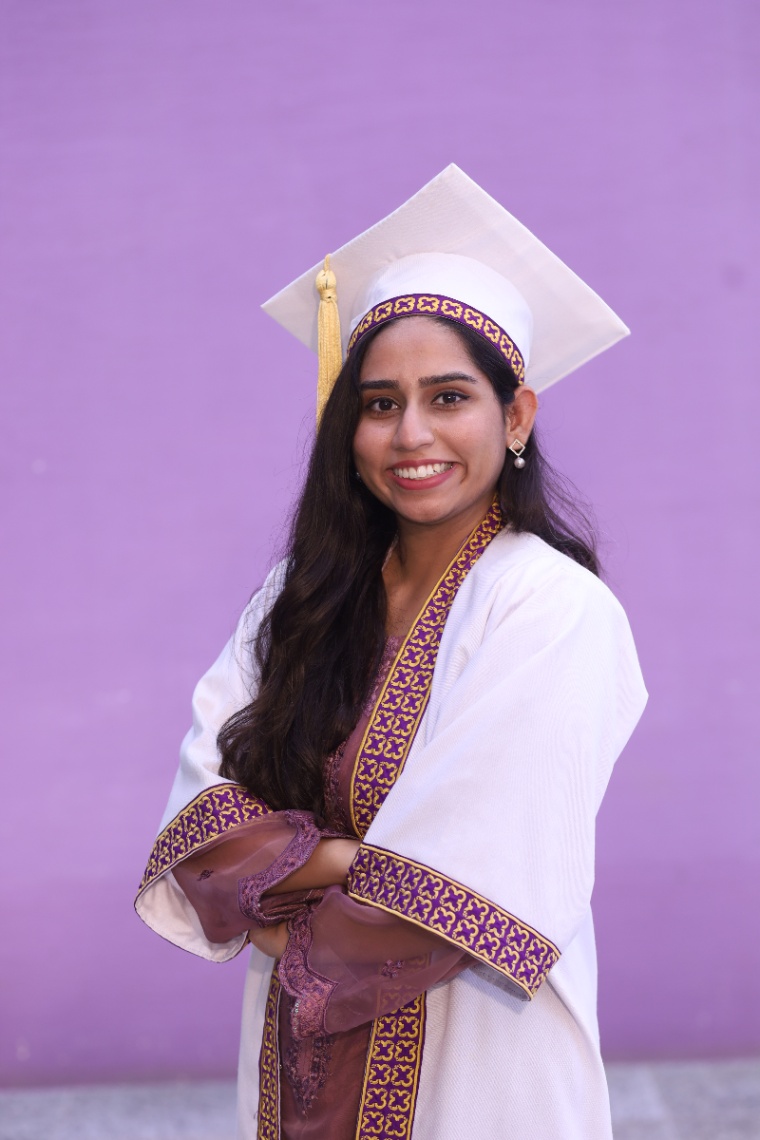
Qurat Ul Ain
Aspiration Statement
I would like to pursue a career in corporates, organizations or NGOs working towards or contributing to the civil society in some capacity. I also aspire to pursue my postgraduate degree in international development after gaining some industry experience.
Core Skills
- Communication Skills
- Leadership
- MS Office
- Problem-solving
- Qualitative Research Skills
- Quantitative Research Skills
- Time Management
- Writing Skills in English, Urdu & Sindhi
Academic Awards / Achievements
- Dean's List, Fall 2022
- Dean's List, Fall 2021
Experience
Leadership / Meta-curricular
- Managerial Editor, Tezhib, Habib University's Undergraduate Research Journal
- Hamdast Project Lead, Serve Club, Habib University
- HU TOPS Student Ambassador, Habib University
- Logistics Volunteer, TEDxHabib 2019
- Worked with the American Councils for International Education for five weeks in summer 2022 as a Senior Alumni Instructor in Washington, DC, for the orientation of KL-YES students from 20+ countries
Internship / Volunteer Work
- Research Assistant, Pakistan Chowk Community Center x Marvi Mazhar & Associates (May 2022 – June 2022)
- Orientation Leader, Office of Academic Performance, Habib University (July 2021 – August 2021)
- Content Developer, Baithak - Challenging Taboos (May 2021 – June 2021)
Publications / Creative Projects
- Co-authored a research paper titled "The City of Lost Heritage" published as a feature piece in Dawn's EOS magazine
Final Year Project
Project Title
The Politics of Citizenship
Description
The emergence of nation-states brought with it a set of values and frameworks for the state that rest on the construction of national identity, its system of governance, and the idea of citizenship, which defines who can and who cannot be a part of the state. Citizenship has been used to disenfranchise certain factions of society by means of legal documentation, and by not recognizing them as citizens of the state. Pakistan offers a multi-layered study of its complex bureaucratic processes and structures, and this paper provides a critical textual analysis of the theorization of citizenship in Pakistan. It offers a critique of the bureaucratic structures that disproportionately hold the power to write the state’s narrative and explores the impact that it has on the experiences of individuals in Pakistan.